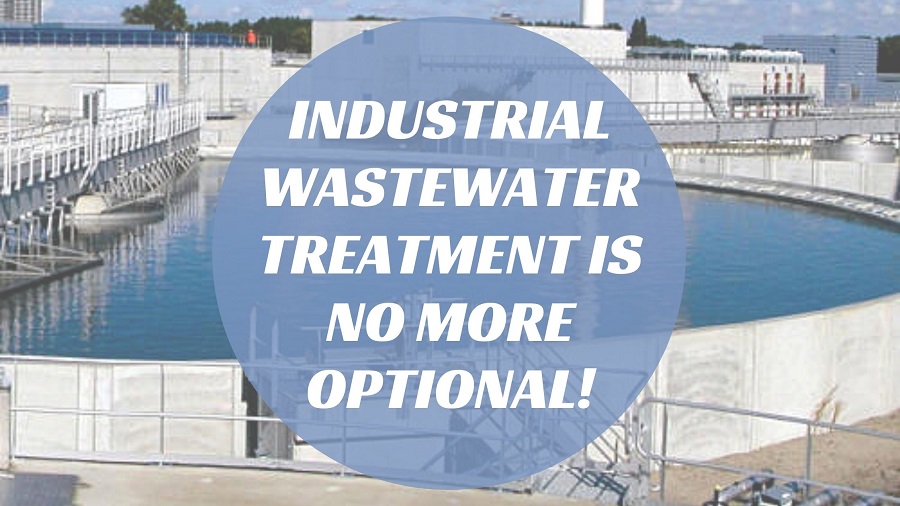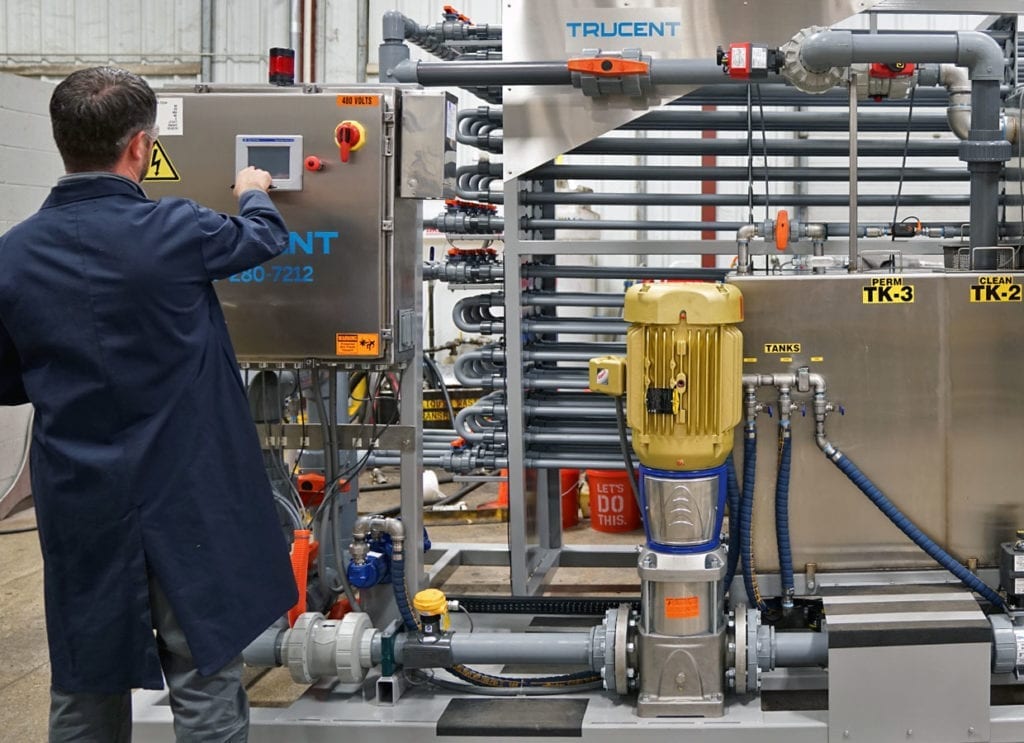Industrial Waste Water Treatment-- Boost Effectiveness with Custom Water Treatment Solutions
Industrial Waste Water Treatment-- Boost Effectiveness with Custom Water Treatment Solutions
Blog Article
Challenges and Solutions in Industrial Waste Water Treatment
The treatment of commercial wastewater presents a diverse selection of challenges, ranging from stringent governing conformity to the intricacies of cost administration and technological constraints. The variability in waste structure even more complicates the efficiency of standard treatment methods, usually resulting in intensified operational expenditures. Arising remedies such as sophisticated oxidation processes and ingenious funding designs reveal pledge in attending to these problems. As industries face the need for lasting methods, the question remains: what strategies will eventually bring about an equilibrium in between conformity, cost-efficiency, and ecological duty?
Regulatory Compliance Challenges
Just how can industrial centers browse the complicated landscape of regulative compliance in wastewater therapy? The regulative framework governing wastewater administration is multifaceted, usually differing by territory and type of industry. Facilities must comply with federal, state, and regional policies that dictate effluent quality requirements, discharge limits, and monitoring demands. Failure to conform can cause extreme fines, including fines and operational shutdowns.
To properly handle these conformity obstacles, centers ought to execute durable tracking and reporting systems that make certain real-time data collection and analysis. Normal audits and risk analyses can recognize potential compliance gaps, permitting proactive changes in treatment processes. Employee training programs concentrating on regulative expertise and best methods are necessary to foster a culture of compliance within the organization.
Furthermore, engaging with regulative companies can provide beneficial understandings and clear up uncertain regulations. Facilities may likewise benefit from consulting with ecological specialists that specialize in wastewater therapy conformity, guaranteeing that they stay informed of evolving guidelines. By taking on these strategies, commercial centers can not only fulfill conformity needs yet additionally boost their operational effectiveness and ecological stewardship.
Expense and Financial Obstacles
Navigating regulative conformity in wastewater treatment often provides substantial financial obstacles for commercial centers. The costs related to executing essential treatment innovations, maintaining conformity with strict policies, and managing operational costs can be discouraging. Numerous organizations encounter high first capital expenses for the construction or upgrading of wastewater treatment plants, which may stress budget plans, particularly for medium-sized and tiny business.
Furthermore, recurring functional costs, including chemical, labor, and maintenance inputs, add to the economic concern. The changability of changing power prices and the potential need for extra financial investments to satisfy developing laws intensify these economic pressures. Oftentimes, the absence of monetary rewards or assistance from government bodies makes it much more difficult for organizations to validate financial investments in innovative treatment systems.
Furthermore, the economic practicality of wastewater treatment services is frequently examined, particularly for industries with limited revenue margins. Consequently, it is essential for industrial facilities to discover cost-efficient techniques, such as taking on innovative funding alternatives, taking part in partnerships, and leveraging arising technologies that can aid mitigate these financial obstacles while making sure compliance with ecological criteria.

Technical Limitations
Countless technological restrictions prevent the performance of industrial wastewater treatment procedures. One substantial difficulty is the inadequacy of existing therapy technologies to address complicated impurities.
Additionally, the scalability of treatment technologies poses an obstacle. While some innovative techniques, like membrane purification or sophisticated oxidation, show promise in regulated settings, their execution on a bigger range can be practically tough and excessively costly. Maintenance and functional intricacies additionally complicate the adoption of these systems, specifically for smaller sectors with limited technical competence.
The integration of real-time tracking innovations additionally remains insufficient in lots of treatment facilities. Without effective monitoring systems, drivers can not properly analyze treatment performance or spot prospective failures, resulting in inconsistent effluent quality. Resolving these technological limitations with research study and advancement, alongside financial investment in cutting-edge remedies, is crucial for boosting the efficacy of industrial wastewater therapy and ensuring regulative compliance.
Irregularity in Waste Structure
In the world of industrial wastewater therapy, the variability in waste make-up presents a formidable obstacle. Industries produce wastewater with diverse qualities, affected by factors such as manufacturing procedures, raw materials, and functional practices. This diversification complicates the treatment procedure, as traditional systems often battle to properly resolve the variety of contaminants existing.
For example, wastewater from food handling may have high levels of raw material, while effluents from chemical manufacturing can consist of heavy steels and dangerous substances. This difference demands adaptable treatment strategies to ensure compliance with ecological laws and secure public health. In addition, variations in waste composition can happen in time, influenced by modifications in production timetables, upkeep tasks, or the intro of brand-new items.

Ingenious Therapy Solutions
Ingenious treatment remedies are essential for attending to the complexities of commercial wastewater monitoring. Traditional techniques commonly drop short in efficiently removing a variety of impurities, especially in facilities with diverse effluent streams. Recent innovations concentrate on integrating cutting-edge modern technologies to boost treatment effectiveness and sustainability.
One promising approach is making use of advanced oxidation processes (AOPs), which leverage effective oxidants to degrade natural contaminants. AOPs, consisting of photocatalysis and ozonation, can substantially reduce harmful review compounds and boost effluent high quality. Furthermore, membrane layer bioreactor (MBR) technology has obtained grip, integrating biological treatment with membrane layer filtering, resulting in premium effluent and lowered impact.
Another innovative service is the execution of source healing systems. Methods like anaerobic food digestion not only deal with wastewater however also create biogas, which can be utilized as a sustainable power source. In addition, the adoption of expert system and artificial intelligence models can enhance treatment processes by forecasting variations in wastewater make-up, thus boosting functional effectiveness.
These ingenious options not only address regulatory conformity however also advertise environmental sustainability, leading the way for a more effective and resistant commercial ecological community.
Final Thought
In final thought, resolving the challenges of commercial wastewater therapy needs a complex approach that integrates regulatory conformity, expense management, and technological innovations. A commitment to continuous enhancement in treatment methodologies will inevitably contribute to the efficient monitoring of commercial wastewater and ecological defense.
The treatment of commercial wastewater provides a diverse range of difficulties, ranging from rigorous regulative conformity to the complexities of price monitoring and technological limitations. Industrial Waste Water Treatment.Navigating governing conformity in wastewater treatment commonly offers considerable financial difficulties for industrial facilities. Resolving these technological limitations with study and advancement, alongside investment in innovative options, is critical for boosting the efficiency of commercial wastewater treatment and making sure regulatory conformity
Wastewater treatment centers need to spend in durable surveillance systems and flexible therapy technologies qualified of suiting differing influent attributes.In verdict, resolving the difficulties of commercial wastewater therapy calls check my site for a diverse method that integrates regulative compliance, price monitoring, and technical developments.
Report this page